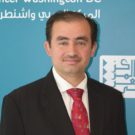Speakers
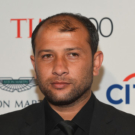
Raed Al-Saleh
Director, Syria Civil Defense (The White Helmets)
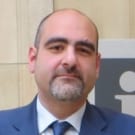
Assaad Al Achi
Syrian Civil Society Activist; Executive Director, Baytna
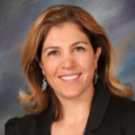
Reem Connor
Board Member, Syrian American Council
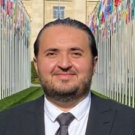
Mohamed Hamze
Research Manager, Syrian American Medical Society
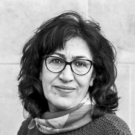
Wejdan Nassif
Feminist Political Activist; Author; Co-Founder, Syrian Women’s Political Movement
Moderator
About the Webinar
On February 28, Arab Center Washington DC (ACW) held a webinar titled “The Aftermath of the Syria-Turkey Earthquake: Humanitarian Crises and Geopolitical Challenges.” Panelists were Raed Al-Saleh, Director of Syria Civil Defense (The White Helmets); Assaad Al Achi, Syrian civil society activist and Executive Director of Baytna; Reem Connor, Board Member of the Syrian American Council; Mohamed Hamze, Research Manager, Syrian American Medical Society; and Wejdan Nassif, a feminist political activist and Co-founder of the Syrian Women’s Political Movement. Radwan Ziadeh, ACW Senior Fellow, moderated the event.
Raed Al-Saleh discussed his organization’s history and its work since 2013, first during the Syrian regime’s attacks on opposition areas and now in response to the February 6 earthquake in Turkey and Syria. He said that the challenges his organization faced in responding to the earthquake, especially during the first few days, were overwhelming because of a lack of the necessary technical tools to help those affected. He called on the international community to assist Syrians in the post-earthquake aftermath because they currently lack even the most basic necessities.
Reem Connor spoke about her personal experience of having traveled to Turkey after the earthquake to help provide humanitarian assistance, describing the intense suffering she has witnessed there, especially among Syrian refugees who often lack the support networks from which many Turkish citizens affected by the earthquake benefit. Connor argued that humanitarian assistance is not enough, and that advocacy in Washington, DC and elsewhere is needed in order to better serve those affected by the earthquake. She pointed to the recently passed House Resolution 132 as a success in this regard.
Mohamed Hamze described the dire situation that healthcare professionals are facing in responding to the crisis, which has been compounded by years of attacks on Syrian healthcare facilities by the Assad regime and its allies, and by the COVID-19 pandemic. Hamze said that healthcare professionals are currently overwhelmed and lacking necessary equipment to treat the earthquake victims, and also pointed to the delay in the arrival of foreign medical assistance as another factor that has led to the loss of many lives. In describing the heartbreaking toll of the earthquake, Hamze stated that these are indeed “horrific times.”
Assaad Al Achi pointed to the tragic effect of the earthquake on Syrians, both inside Syria, where humanitarian aid did not reach until days after the initial quake, and inside Turkey, where discriminatory policies and restrictions made the disaster a “double tragedy” for Syrians. Al Achi argued that the UN has failed the Syrians by effectively leaving those inside Syria to die, and that the UN must develop a new model with multiple hubs for humanitarian assistance and more vigorous accountability for humanitarian funding and supplies.
Wejdan Nassif detailed the work her feminist organization has done in securing assistance to those affected by the earthquake, especially for women who have found themselves at the mercy of a natural disaster without food, shelter, and other basic necessities. She highlighted the special challenge for women, as they lost their privacy by being forced to reside in exposed camps and poor facilities. She also criticized the politicization of aid to the Syrians by the Assad regime, which tried to exploit the earthquake to break its political isolation.
Featured image credit: Shutterstock/Doga Ayberk Demir

